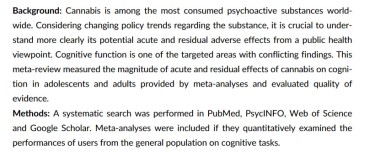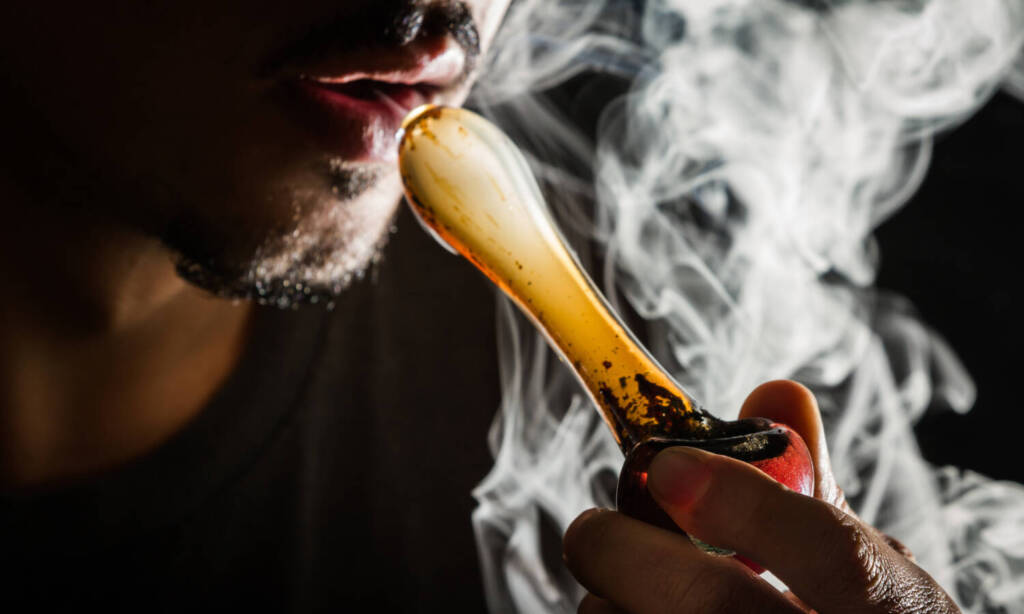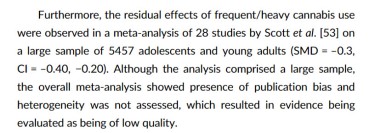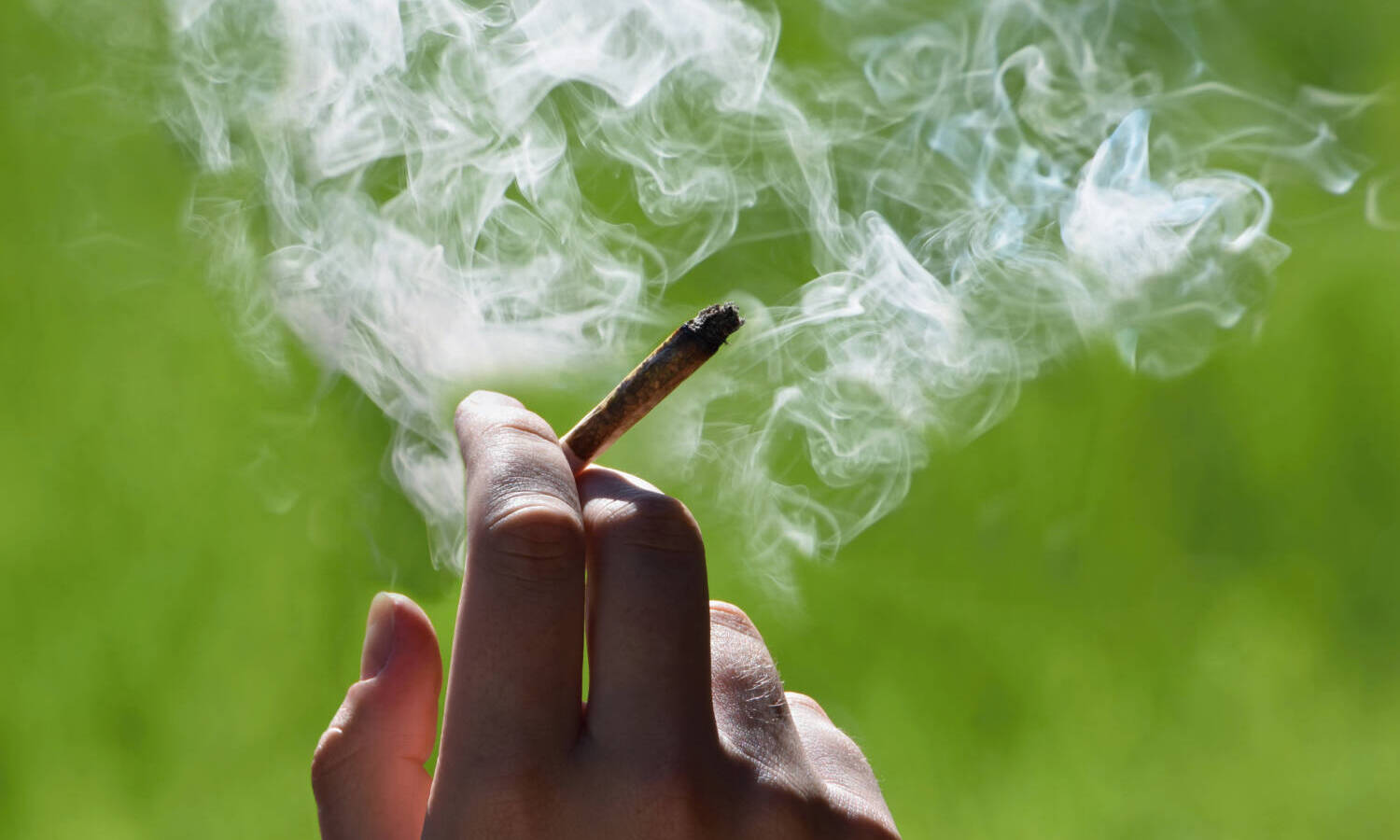There’s a good chance that none of the claims in this study can be replicated in a clinical setting, meaning that at this moment, you can simply ignore this research.
This article originally appeared on Cannabis.net and has been reposted with permission.
Did you hear about the latest study that claims using cannabis has negative impact on your ability to think and that it may continue after you stopped using? Yes, in essence, the study suggests that by using cannabis you will experience a detrimental effect on your cognition and that it may be permanent irrespective if you are young or old.
Of course, one would expect that with such outlandish claims that at the very minimal the researchers would provide substantial evidence, however, by their own admission, the “quality of evidence is low or moderate” despite them claiming that it was “of high quality”.

Furthermore, none of the media publications that covered the research posted any data on the findings but simply regurgitate the same drivel as what the official study said in its PR release.
In today’s article, we’re going to be taking a closer look at some modern day Reefer Madness and how this anti-cannabis rhetoric becomes a part of the national conversation.
What the Actual Study Claims
Let’s start with the Abstract of the research.

As you can see, that what the study did was utilize Meta-analyses on particular papers found on the databases of PubMed, PsycINFO, Web of Science and Google Scholar. They then took all of these studies and compiled them to compare all the data.
RELATED: Is Smoking Weed Every Day Harmful? Here’s What A New Study Reveals
They then created categories to look for specific changes including;
- Learning and Memory
- Attention
- Processing Speed
- Perceptual Motor Function
- Language
According to their findings, “verbal learning and memory” had the most impact when people were allegedly under the influence and that “persisted when the acute intoxication (aka the high) passed”.
For the rest of the categories, the researchers claim that “small to moderate” effects were experienced, and all with “lasting effects”.
Can We Trust the Data?
These are legitimate studies, but I’ve been covering cannabis for longer than these Researchers have and know a thing or two about the nature of the studies available in these databases. Firstly, it is a known fact that the vast majority of cannabis research is predominantly negative not because cannabis is a risky or dangerous plant, but because the vast majority of the funding went to studies to illustrate the negative impact of cannabis.

Therefore any meta analyses would have a negative bias in the result as there is not enough evidence to counter the claims. There isn’t enough research into the benefits and even the quality of the evidence that was used by the researchers were “low to moderate”.
RELATED: Want A Higher Quality Of Life? Use Cannabis Daily, Says New Brazilian Mental Health Study
Furthermore, this analyzes takes both acute users and moderate users, old and young, and throws them all in one pile. Because as we all know, the physiological and cognitive health of a young person is exactly the same as an older person…because “SCIENCE!”

The screenshot above shows us one section of a Meta-Analysis it utilized within their critical analysis and as you can see, they included evidence of “low quality”.
The question then should be, “why are we still talking about “Low Quality” of evidence. Of course, researchers use these papers to ask for grants on more specific studies, but when a study is flawed from the get go, riddled with errors – it creates a disingenuous picture of what is really happening.
We Need Honest Cannabis Science
At this point in the article I’m going to stop reporting on the study since the vast majority of the studies they utilized are not replicable in a lab setting. In other words, these are once more “assumptions” based on a rhetoric of people who don’t fully understand the drug or may have had a bias against the substance.
RELATED: Why The Latest Study Saying Cannabis Is Bad For Sleep Is Deeply Flawed
However, as someone who has been reporting on cannabis for more than a decade, I don’t think that it’s bad to see whether cannabis has long lasting effects. It’s in the consumer’s best interest to have as much data as possible to make educated decisions about consumption.

However, in order to do this we need to have funding that not only looks into the potential negative effects of cannabis. In virtually all of the studies, “dose, previous use, tolerance,” all played a factor in the degree of “intoxication” and “impairment” as a result. This means that if someone smokes often, they begin to build up a resistance to these effects – yet according to the study, “it doesn’t matter”. Young, old, heavy user, moderate – their data shows that there’s residual effects in them all.
RELATED: There’s No Proof Smoking Weed Occasionally Is Harmful, Says Top Federal Drug Official
But that’s not true because there are millions of cannabis users that outperform their non-smoking counterparts in all of these levels of cognition. Cognition and intelligence, retention, and higher cerebral functions can be influenced by a myriad of things such as a lack of sleep, excess stress, poor diet.
This means that cannabis doesn’t necessarily have any causal relationship to the effects illustrated in the study, meaning that we don’t have an accurate picture of the whole truth. In fact, we now have a skewed version of the truth that is being published on multiple sites as “fact”.
Trust in the Institutions
C19 wrecked the trust people have in their institutions. Everyone saw the ineptitude not only of the government, but many of the scientific bodies. There is corruption within the scientific ranks and the pharmaceutical industry has long funded anti-cannabis scientists. When studies of this nature come to light, it doesn’t help to inspire more trust. Rather, it seems that there are researchers desperate to prove their biases by compiling data, playing with queries to create a narrative that fits their hypothesis.
There’s a good chance that none of the claims in this study can be replicated in a clinical setting, meaning that at this moment, you can simply ignore this research even though I’m certain you’re going to see rehashed versions of the findings published on media outlets around the world.
This article originally appeared on Cannabis.net and has been reposted with permission.


